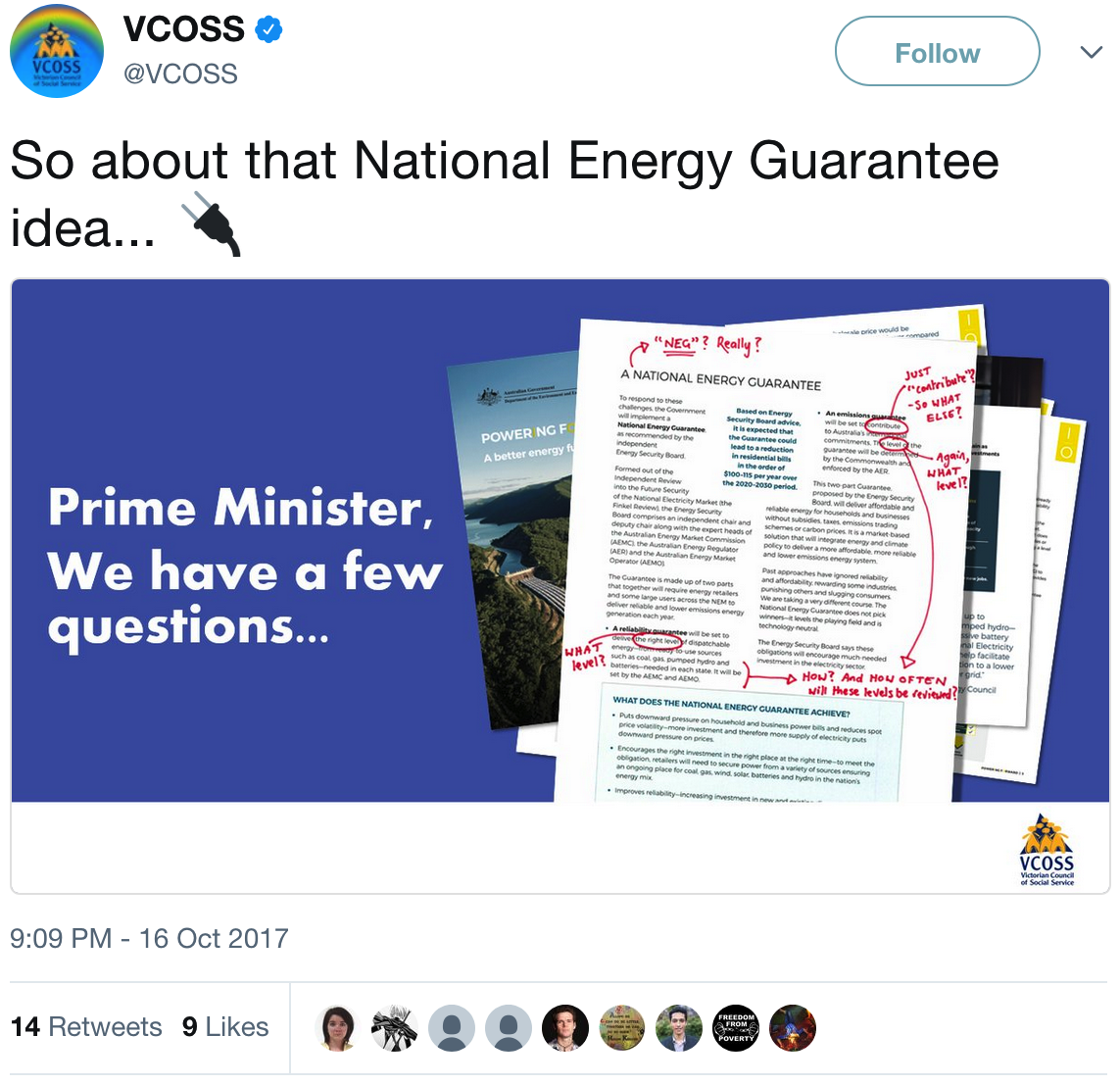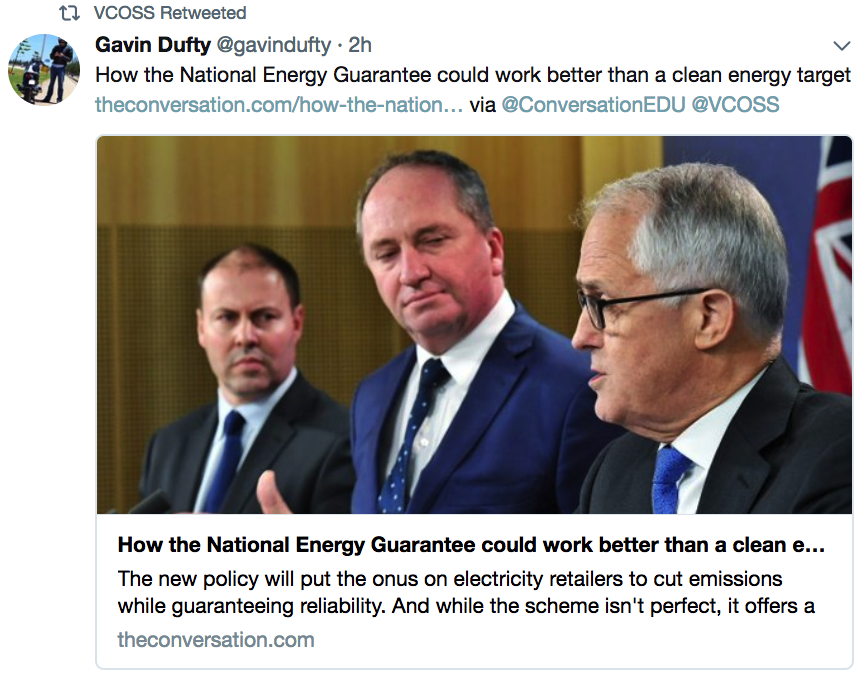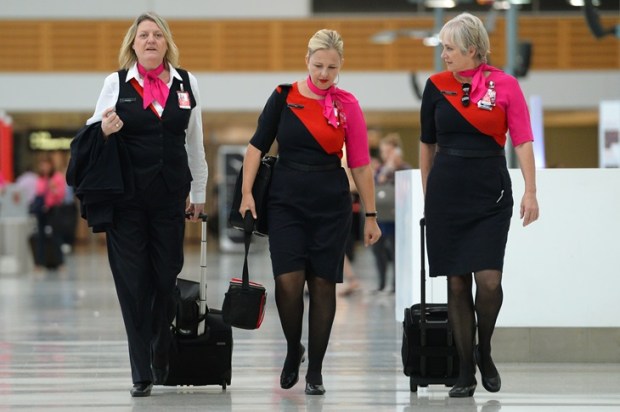An outfit called the Victorian Council of Social Service, one supposes, would be concerned with the less well-off.
Apparently not.
Have a look at the way it reacted to the release of the Turnbull Government’s National Energy Guarantee today:
 Energy poverty? Deaths in cold weather because people can’t afford to keep the heating on? Deaths in summer because of the costs of cooling?
Energy poverty? Deaths in cold weather because people can’t afford to keep the heating on? Deaths in summer because of the costs of cooling?
Nah.
VCOSS appears to have gone negative for … well, almost for the sake of it.
It’s hard to work out from their Tweet what they’re on about other than (presumably) saying anything that comes from the Coalition must be bad — but it appears crystal clear that they’re not bothered about high power prices.
You think that might be core business for a body like VCOSS. A key issue.
It was only yesterday, after all, that the state’s highest-selling daily newspaper reported average household power bills in Victoria have increased by $400 over the last decade.
The Herald Sun story said:
Huge increases in retail and network charges have pushed up the average Victorian household’s power bill by almost $400 in the past decade.
The competition watchdog today releases a damning report on electricity prices …
The report reveals increases in electricity prices were not matched by price increases in other areas of the economy, nor in wage growth.
It also reveals those on low incomes are finding it increasingly difficult to absorb electricity price increases and are limited in what they can do to reduce their energy costs.
The average Victorian household’s annual power bill is now $1457, up from $1088 in 2007-08…
Green schemes, mostly the Renewable Energy Target and solar feed-in tariffs, accounted for 22 per cent of the increase — around $92 a year …
The report revealed that nationally residential prices have increased by 63 per cent on top of inflation since 2007-08…
Just the day before its Sunday stablemate reported:
Energy bills for an average household in Victoria have rocketed to as much as $3655 a year, a report reveals.
The shocking figures come as surging electricity and gas bills have contributed to the St Vincent de Paul Society experiencing a 40 per cent increase in financial support for Victorians in need.
While ahead of today’s announcement in Canberra the Hun said:
Soaring electricity and gas costs are crippling families in Melbourne’s growth corridors as they juggle utilities bills and home loans.
Mortgage belts such as Hume, Casey and Geelong have emerged as energy pain hot spots, attracting the highest number of disputes about disconnections, high bills and debt collections.
“What we are seeing is some areas of Victoria where people are really struggling,” Energy and Water Ombudsman Victoria Cynthia Gebert said.
“Energy affordability is a huge concern.”
Not to VCOSS. They appear to more concerned with lowering emissions, as a retweet later in the day made clear:

Why? Have a look at the “Vision and Mission” section of their website:
VCOSS advocates for an equitable and sustainable society in which every Victorian has a fair share of the community’s resources and services.
VCOSS is all about structuralist semantics, not about helping the poor.
And the great thing about making leftie gestures rather than offering practical assistance to those in need is that you don’t have to get your hands dirty.
Or worrying about how the poor pay for their electricity.
Got something to add? Join the discussion and comment below.
Got something to add? Join the discussion and comment below.
Get 10 issues for just $10
Subscribe to The Spectator Australia today for the next 10 magazine issues, plus full online access, for just $10.


























Comments
Don't miss out
Join the conversation with other Spectator Australia readers. Subscribe to leave a comment.
SUBSCRIBEAlready a subscriber? Log in